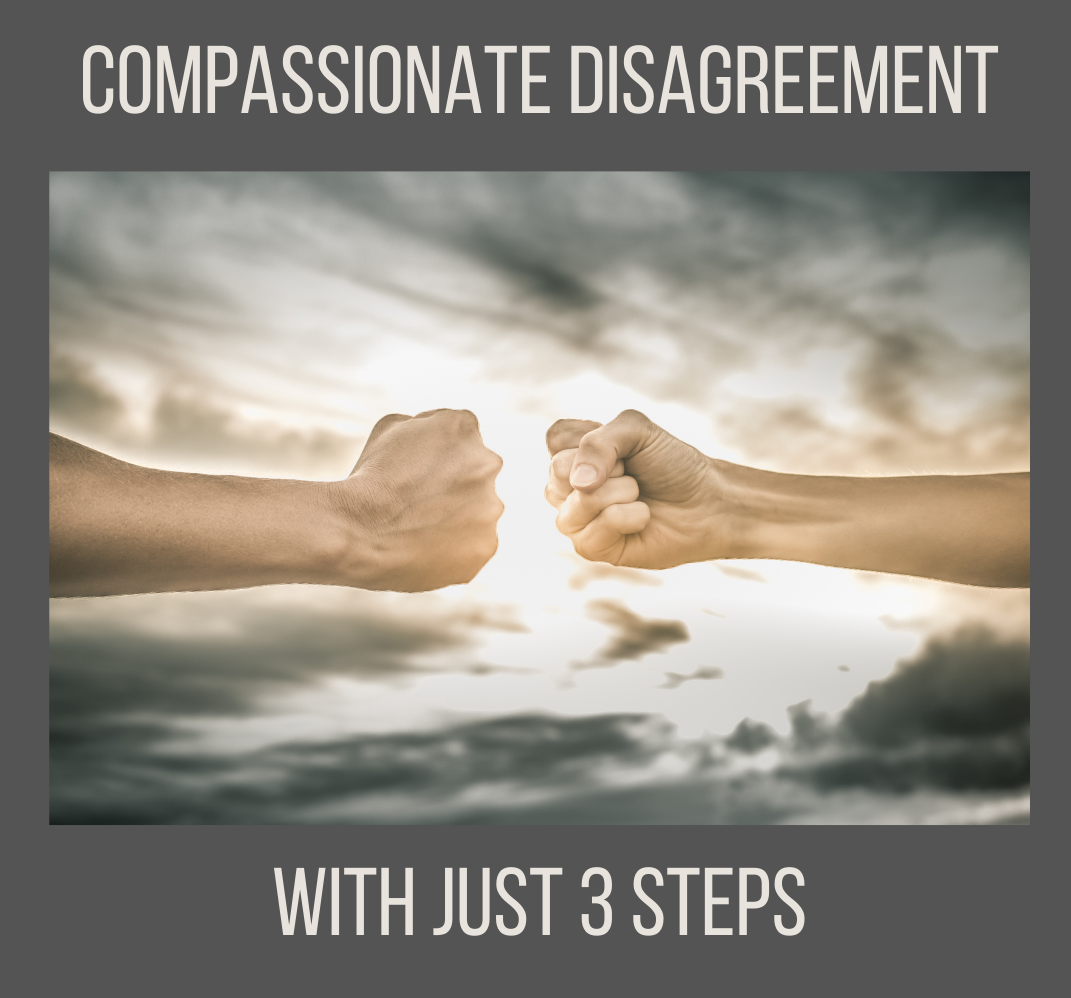A lack of consensus or approval defines a disagreement. Disagreements are a part of the human experience and often begins the moment we learn to speak the word “no” as toddlers. Expressing our differing opinions with others can be healthy, leading to amazing breakthroughs and change. As the great Mahatma Gandhi says “honest disagreement is often a good sign of progress.”
However, it can also be a highly destructive force. We’ve all seen disagreements lead to wars on the extreme end, discrediting someone, relationships ending, and everything in between. So how do we stray away from destructive encounters in favor of constructive and humanizing disagreements?
The Caring Way to Disagreement
The best way to approach a conversation with differing perspectives is with care. This means putting the human first instead of the opposing points of view. The following three reminders are paramount if we want to avoid the havoc disagreements can bring.
- Judgment Free Awareness: As humans we develop our beliefs and values from past experiences that usually validate what we believe. It’s important to remember that a person is not their beliefs; beliefs can change with new experiences that force us to leave the others behind. The key is to not be so married to our own beliefs that we get emotional when someone sees things different than us or use it as a reason to view the other as less than us. When we learn to disagree without judgement we honor the other person and ourselves; think about the golden rule.
- Have No Agenda: Approach the disagreement with the spirit of curiosity and no agenda or attachment to the outcome. Sometimes we focus so much effort on wanting to change the other person or fearing that we’ll be changed, we don’t ever ask questions to understand the other person’s point of view. Disagreements can quickly escalate to heated arguments because of this. Seek to understand and hear the other person out. People are more likely to hear us out when they feel heard and safe. The best way to do that is to remain curious and have no agenda.
- Agree to Disagree: Knowing when to walk away from a disagreement is one of the most important reminders. Sometimes we feel so passionate about a topic, we cannot comprehend another point of view. Sometimes other points of views are wrong and the views themselves are destructive. The key here is to agree to disagree with the person and move on. In those cases, our energy is better spent making actual change through other avenues than directly with one person.
All in all, disagreements can be marvelous, leading to change and deep understanding, or they can be malevolent and dehumanizing. At the end of the day, no matter how big the disagreement, we can either walk away with love in our hearts for the other person or hatred. The latter choice leads to wars, isolation, and the “us against them” mentality. It doesn’t have to be that way. The 3 steps to compassionate disagreement can keep us in our hearts. Ultimately, the choice is ours.
By Mona Nyree Stephens, contributing author
We invite you to discover inspiring and effective ways to care for yourself and to serve others. Now more than ever, caring is what we all need most. Caring for our self. Caring for others around us. Life now demands caring, resilience and compassion like never before. So, become a Custodian of the Caring Movement and help create the world we need right now, the world we want for our future generations.
UCA resources available to help include the Turbulent Times Resources Center, Virtual Volunteering, radio show, publications and online store offering members huge discounts and always free shipping.

